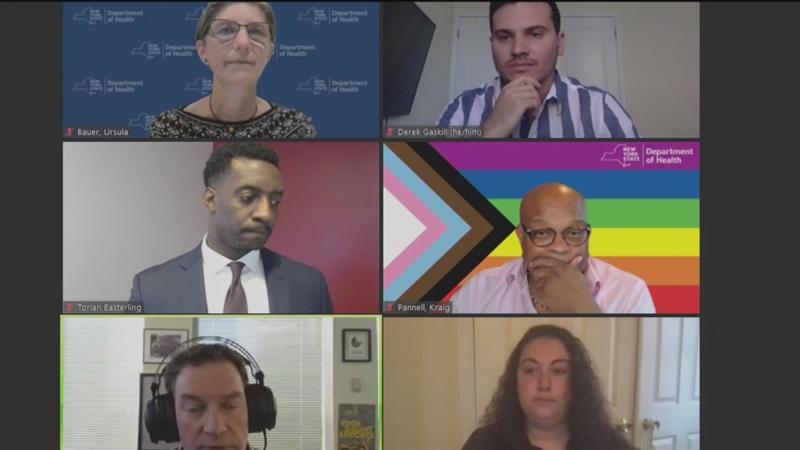Virtual town hall meeting to address Monkeypox
[anvplayer video=”5126503″ station=”998131″]
ROCHESTER, N.Y. (WHEC) — As confirmed cases of Monkeypox continue to grow across the country, it’s exploding in New York State.
Out of the 6,000 cases in the country, there are 1,600 cases in the state, including 6 cases here in Monroe County.
News10NBC sat in on a town hall meeting where doctors offered some advice on how to protect yourself from the virus.
Much of what was discussed was centered on New York City since it’s the epicenter of the outbreak. Doctors at the virtual town hall were also asked questions from the concerned public.
"What we have learned a lot from COVID is that we have to remain humble. We know that the science is evolving, and there’s so much to learn," said Dr. Torian Easterling from the City’s Department of Health.

Doctors all across the state are trying to stay several steps ahead of the growing Monkeypox virus. Wednesday night doctors from Albany and New York City answered questions and gave online viewers an update on the virus. Dr. Ursula Bauer, New York State’s Deputy Commissioner of Public Health talked about one of the groups most at risk.
"One group that we’re particularly concerned about is African-Americans," said Bauer. She continued, "We’re seeing more African-Americans among cases than we are among those who are receiving the vaccine proportionately."
Speaking of vaccines, Dr. Bauer says there’s still a very limited supply.
"There’s much more demand for the vaccine than there are vaccines to go around, and we’re doing our best to get that small supply of vaccine out to the people who are at highest risk of a recent exposure to MPX," said Bauer.
Governor Kathy Hochul says more vaccines are on the way.
"110,000 are coming to New York State. 80,000 of which are going to New York City," said Hochul.
One question that got a lot of attention from the doctors is—who exactly qualifies for the Monkeypox vaccine?
"Our criteria are clear. You know gay, bisexual, other men who have sex with men, or transgender, gender not conforming, or gender non-binary are all full on our eligibility criteria," said Easterling.
Women are considered low risk, but doctors say anyone that has close contact with an infected person also qualifies for a shot.
"They should call the health department and make sure, identify as a close contact of a known case. Call their local health department, and we will make sure, working with your local health department, and your provider that you get the vaccine," said Bauer.
Follow this link to find all the updated information on the virus, and of course, how to protect yourself.